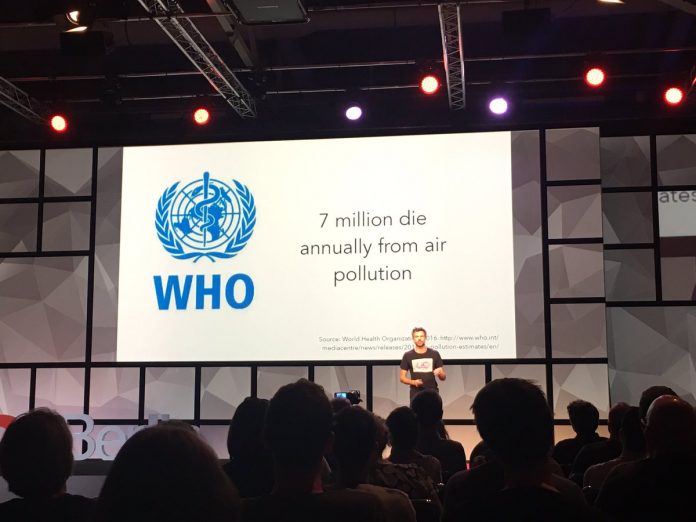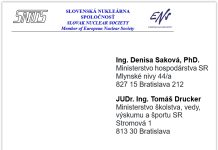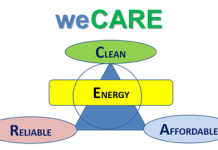It has been two years since COP21 in Paris where 195 countries agreed to make all possible efforts to keep average global temperature rise this century well below 2°C, and to try for below 1.5°C. Current policies presently in place around the world are projected to reduce baseline emissions and result in about 3.6°C warming above pre-industrial levels [1]. So far, the pledge trajectories are far from satisfactory and time is running out for action to be taken to achieve the important goal set by the Paris Agreement.
The coalition of more than 140 associations and technical societies involved in the Nuclear for Climate grassroots initiative is calling on European policymakers, stakeholders and leaders to wake up and start acting now to mitigate impact to our climate. The needed actions are clear.
The world must increase the deployment of all low carbon energy sources to replace fossil fuels. We have no choice if we are to limit the negative impacts of climate change while still meeting vital development goals.
Nuclear energy is a low-carbon energy source recognised by the Intergovernmental Panel on Climate Change (IPCC). Throughout its life cycle (construction, operation, decommissioning) its emissions are comparable to those of renewable energy sources – similar to wind energy and well below solar energy.
Nuclear energy is also more resilient, reliable, and dependable than other low-carbon energy sources.
Energy and climate experts agree that pathways with the greatest probability for successfully decarbonizing the energy mix require the use of nuclear energy, and even double the nuclear capacity by 2050 [2].
The European Union, as global leader on climate policy is not on a trajectory to meet its 2030 target, as implemented policies are projected to reduce the EU’s domestic emissions by between 30–39% below 1990 levels, when its target is “at least” 40% [3]. Given the current ongoing climate threats, we cannot afford to wait for future “advanced technologies” or prematurely close existing low-carbon energy sources like nuclear power plants. Nuclear energy is a proven low‐carbon option, available today, and must be a fundamental part of climate change solutions.
Achieving the climate ambitions will also require electrification of a large portion of our transportation system, and for that electric power to be from low-carbon energy sources. This will be possible only if all low-carbon technologies are supported without discrimination.
We, the partners of the Nuclear for Climate coalition, call on European leaders and decision-makers to:
- Make achieving the climate goals their highest priority
- Ensure neutral treatment for nuclear energy among low-carbon energy solutions.
- Ensure the right of countries to choose nuclear energy as a means to reduce greenhouse gas emissions while meeting their energy and development objectives are not precluded in any way by UNFCCC protocols
The potential negative consequences of inaction are too significant to tolerate less than a full commitment to action and the use of all available solutions.
We jointly support the present call and would like to bring it to the attention of key decision-makers.
- European Nuclear Society
- European Nuclear Society – Young Generation Network
- Austrian Nuclear Society
- Belgian Nuclear Society
- Bulgarian Nuclear Society
- Croatian Nuclear Society
- Czech Nuclear Society
- French Nuclear Society
- Finish Nuclear Society
- German Nuclear Society
- Hungarian Nuclear Society
- Italian Nuclear Association
- Lithuanian Nuclear Energy Association
- Netherlands Nuclear Society
- Nuclear Institute
- Polish Nuclear Society
- Romanian Nuclear Energy Association
- Nuclear Society of Slovenia
- Slovak Nuclear Society
- Spanish Nuclear Society
- Swedish Nuclear Society
- Swiss Nuclear Society
- International Youth Nuclear Congress
Reference list:
[1] – Climate Action Tracker and the Ecofys / Climate Analytics / New Climate, November 2016
[2] – Technology Roadmap: Nuclear Energy (IEA/NEA 2015)
[3] – Climate Action Tracker, September 2017






